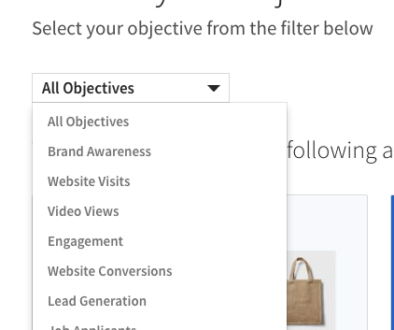It’s time to re-evaluate your marketing automation stack
30-second summary: Right now, companies have a critical opportunity to re-evaluate if their marketing automation stacks can keep up with their unique needs while keeping business growth in focus. If your current marketing automation platform doesn’t seamlessly integrate with your other business technologies, it’s time to look for a […]
30-second summary:
- Right now, companies have a critical opportunity to re-evaluate if their marketing automation stacks can keep up with their unique needs while keeping business growth in focus.
- If your current marketing automation platform doesn’t seamlessly integrate with your other business technologies, it’s time to look for a platform that does.
- Companies must look for flexible tools that incorporate contact management and also go beyond lead generation to impact the complete customer lifecycle.
- You want a core platform that is not only focused on one point of the buyers’ journey, but also one that is more expansive and will help maximize your sales funnel, run with your key systems and make sure leads are being nurtured.
- You need to understand how your investment in a platform will help you grow and deliver ROI. Be sure that you’re clear on pricing structure, contract terms and SLAs, or Service Level Agreements.
The world is moving fast and things are changing every day. With many companies cutting budgets and adjusting their business models to function in the current pandemic, it’s more important than ever to make customers feel supported while being smart with time and resources. The best way to do that is to ensure you have the best tools and vendors to back your unique needs and keep business growth in focus during these unpredictable times. Right now, companies have a critical opportunity to re-evaluate if their marketing automation stacks can keep up with their unique needs while keeping business growth in focus.
It’s also an important time to maintain a clear company road-map for the future, not just the next few months, and determine if your current marketing tools will grow your business today as well as five years down the road.
Here’s how you can take an effective look now at what platforms will help your company weather a crisis and protect your growth.
Knowing when it’s time to switch your marketing automation stack
Many companies miss the warning signs that it is time to re-evaluate their stack, and they find themselves locked into vendor contracts for longer than they should.
Here’s one of the biggest red flags: If your current marketing automation platform doesn’t seamlessly integrate with your other business technologies, it’s time to look for a platform that does.
In today’s world, technology is open. Businesses are more quickly adopting the newest and best automation tools to maximize all aspects of their operations. However, in order to unlock the full potential of these new and advanced technologies, they must interact efficiently.
Marketing automation platforms can help you learn as much about your current customers as they do about prospective customers.
Platforms that help increase growth, but don’t integrate well with your existing CRMs, social media marketing solutions or account-based marketing solutions, make it harder to move the needle towards your goals.
Companies must look for flexible tools that incorporate contact management and also go beyond lead generation to impact the complete customer lifecycle.
Effective growth happens when integrated stacks simultaneously attract new customers and enhance existing relationships, delivering great experiences at every customer touchpoint.
This means that the full marketing team should be able to benefit from the best automated marketing platforms, from demand gen to customer marketing.
Whitepapers
If a piece of your stack sits in a silo and only a few team members benefit from it, it is time to consider another option that can better holistically support your business.
What to consider in a new platform
When it’s time to look for a new marketing automation platform, there are many points to consider.
First, think of the key marketing road-map milestones you have over the next several years. Take into consideration that you’ll likely be using this platform for many years to come, and visualize the company’s unique needs not just in the coming months, but farther down the road.
You want a core platform that is not only focused on one point of the buyers’ journey, but also one that is more expansive and will help maximize your sales funnel, run with your key systems and make sure leads are being nurtured.
The platform must support your goal of creating a great customer experience that helps your brand stand out.
Beyond ensuring you have a platform that fits your company goals, get into the nitty-gritty details of a platform’s pricing model while you research.
You need to understand how your investment in a platform will help you grow and deliver ROI. Be sure that you’re clear on pricing structure, contract terms and SLAs, or Service Level Agreements.
Many expensive pricing structures are based on database size, and because much of your database is often unreachable, you’re stuck shelling out for information that’s not benefiting your bottom line.
Instead, look for models that are more tied to value, like active contacts. Also, marketing automation is a long term process — so be skeptical of a contract that runs month to month.
The right marketing automation platform can help you take your marketing and business efforts to the next level and stay on top of shifting climates.
From controlling the shape and velocity of your funnel and pipeline, to gathering behavioral data of prospects and customers to increase engagement, it’s important for companies to look at platforms not just as marketing software but also as strong communication tools.
In a world where business moves quickly, budgets are tight and customer experience is more important than ever, be critical of your marketing automation platform – and don’t be afraid to make a change to better support your long-term growth strategy.

![Lead Generation & Conversion: Techniques for Long-Term Success [Checklist] Lead Generation & Conversion: Techniques for Long-Term Success [Checklist]](https://www.prolitigation.com/wp-content/uploads/2020/08/leader_1597267855-512x600-2-394x330.png)


